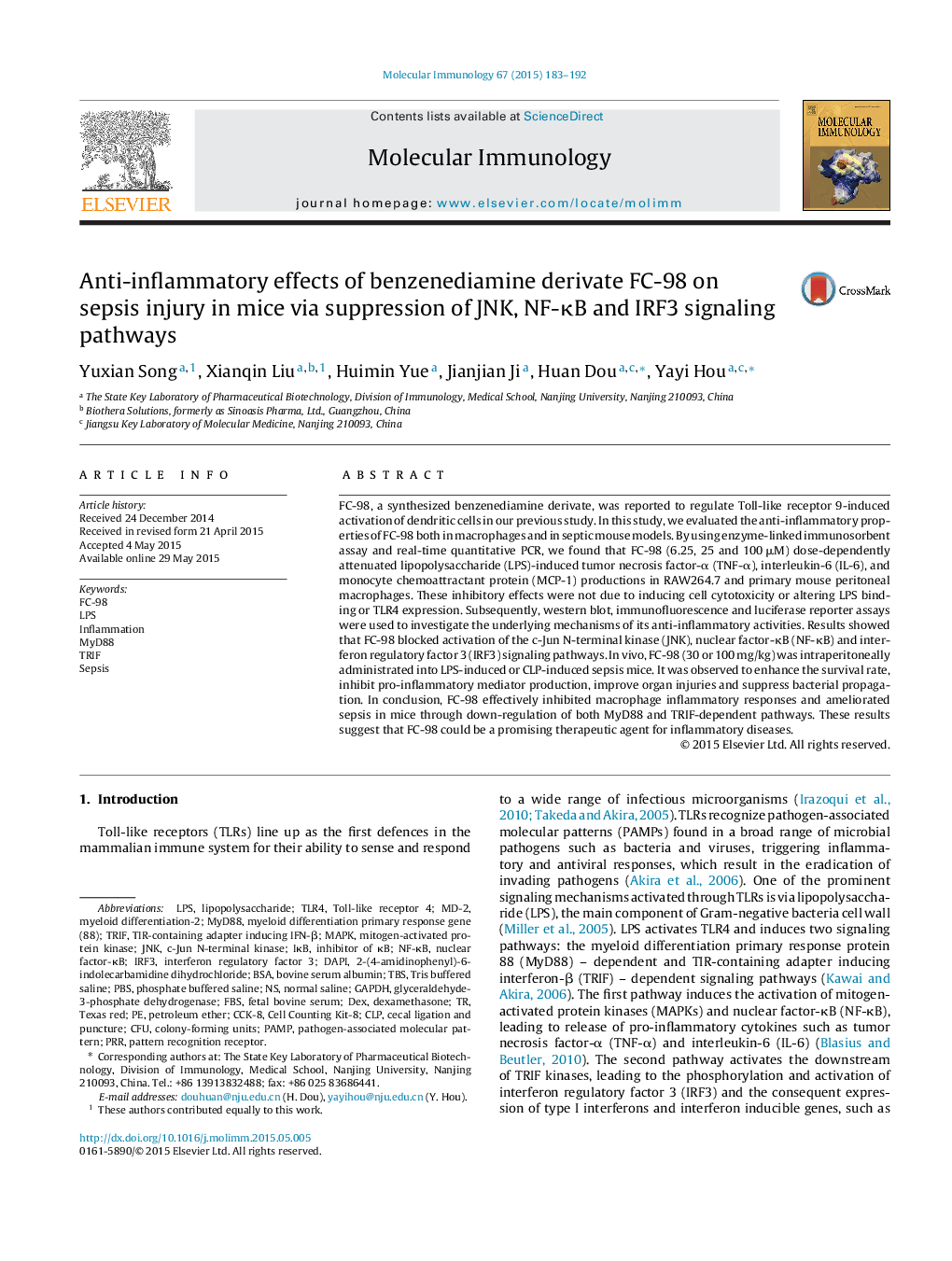| کد مقاله | کد نشریه | سال انتشار | مقاله انگلیسی | نسخه تمام متن |
|---|---|---|---|---|
| 5916621 | 1163753 | 2015 | 10 صفحه PDF | دانلود رایگان |

- FC-98 effectively inhibited LPS-induced inflammation both in vitro and in vivo.
- FC-98 blocked activation of the JNK, NF-κB and IRF3 signaling pathways in macrophages.
- FC-98 enhanced the survival rate, inhibited pro-inflammatory mediator production in sepsis mouse model.
- FC-98 could be a promising therapeutic agent for inflammatory diseases.
FC-98, a synthesized benzenediamine derivate, was reported to regulate Toll-like receptor 9-induced activation of dendritic cells in our previous study. In this study, we evaluated the anti-inflammatory properties of FC-98 both in macrophages and in septic mouse models. By using enzyme-linked immunosorbent assay and real-time quantitative PCR, we found that FC-98 (6.25, 25 and 100 μM) dose-dependently attenuated lipopolysaccharide (LPS)-induced tumor necrosis factor-α (TNF-α), interleukin-6 (IL-6), and monocyte chemoattractant protein (MCP-1) productions in RAW264.7 and primary mouse peritoneal macrophages. These inhibitory effects were not due to inducing cell cytotoxicity or altering LPS binding or TLR4 expression. Subsequently, western blot, immunofluorescence and luciferase reporter assays were used to investigate the underlying mechanisms of its anti-inflammatory activities. Results showed that FC-98 blocked activation of the c-Jun N-terminal kinase (JNK), nuclear factor-κB (NF-κB) and interferon regulatory factor 3 (IRF3) signaling pathways. In vivo, FC-98 (30 or 100 mg/kg) was intraperitoneally administrated into LPS-induced or CLP-induced sepsis mice. It was observed to enhance the survival rate, inhibit pro-inflammatory mediator production, improve organ injuries and suppress bacterial propagation. In conclusion, FC-98 effectively inhibited macrophage inflammatory responses and ameliorated sepsis in mice through down-regulation of both MyD88 and TRIF-dependent pathways. These results suggest that FC-98 could be a promising therapeutic agent for inflammatory diseases.
Journal: Molecular Immunology - Volume 67, Issue 2, Part B, October 2015, Pages 183-192